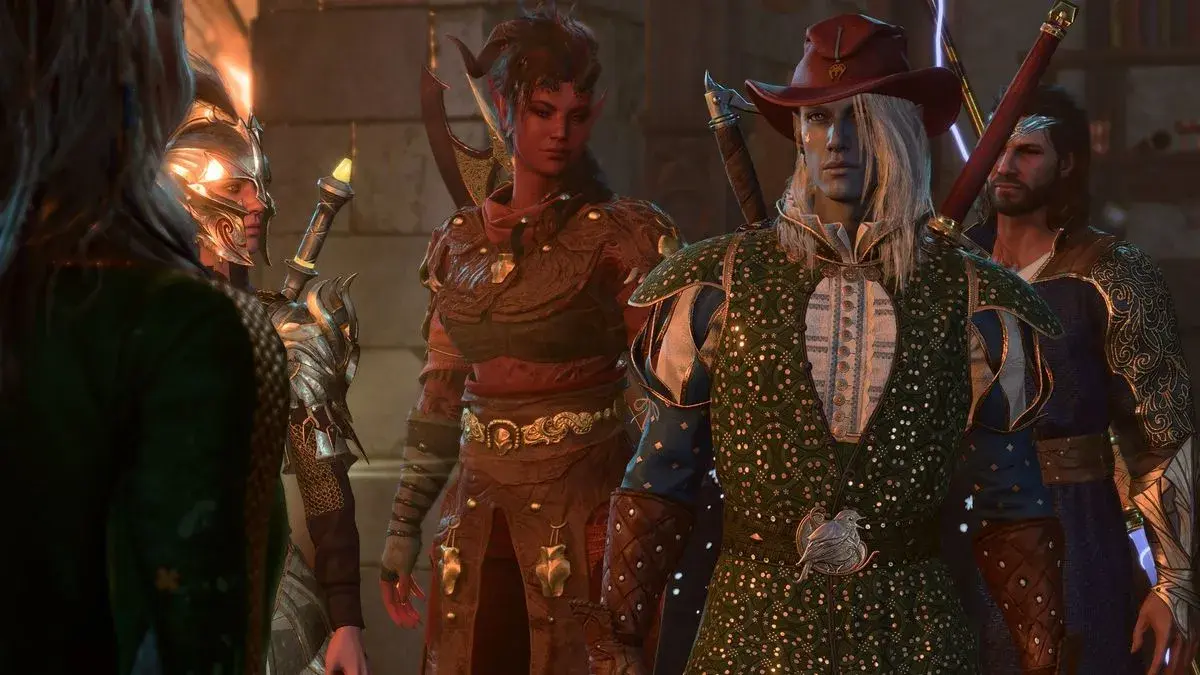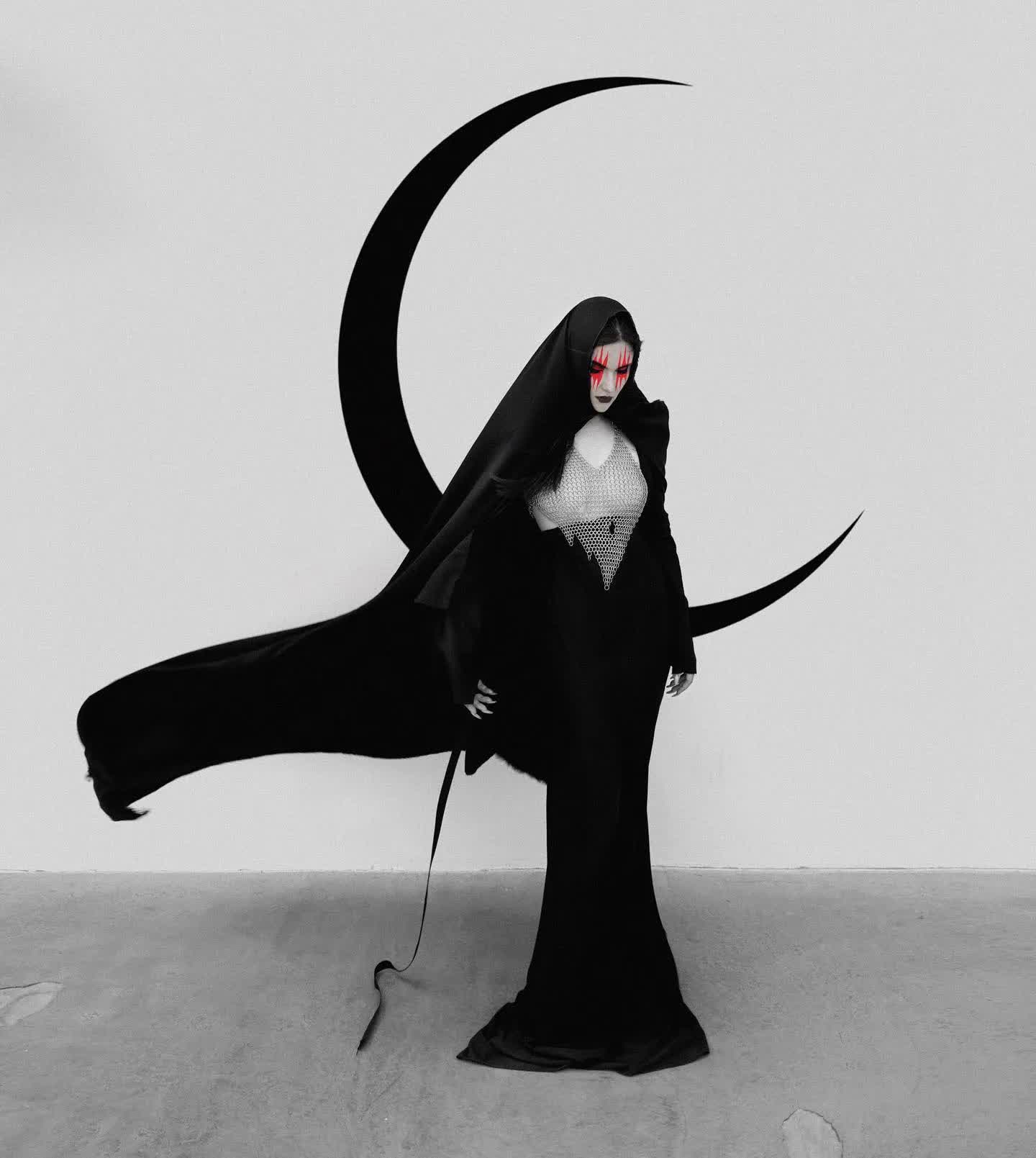I was planning on paying a rogue, paladin, or warlock (based on my tabletop characters), but this article nearly has me convinced. I am waiting for the PS5 release, so any agreement or dissension from my PC friends? Other class recommendations?
I’m skeptical of any article like this on its face. The whole beauty of a well done RPG, especially a CRPG, is that you get choices on how to build your character and how you handle encounters and can be successful with many of them.
If bard is the most fun for you, awesome. If it’s “objectively better”, the game is flawed.
I really think one of the essential parts of a well-made rpg is that it can make you feel like whichever class you’ve picked is the best one
Arguably, that’s the whole point. I never played the original Fallout thinking I could play every option. I’ve seen people complaining about “you have to use savescumming or you miss half the dialogue.” No, that’s called “replayability” so when you go back and try as a different type of character, there will be paths you’ll be locked out of, but there will also be paths that were previously closed now open.
that’s something I’ve noticed about bg3 (only 1-2h in) vs the old ones and even ps:torment.
in most of those you can continue the dialog and usually circle back to the other choices.in bg3 its seems much more like, you say one option you’re stuck with it - which seems much better.
i’ll be interested to see on the replay - but i guess itll be up to me to play it differently.
Bg3 makes you feel like your choices matter. I havnt progressed very far (10 hours in and mostly exploring) and there have been points in dialog or exploring the open world when I pass a “point of no return”. This is where I can tell there will be a consequence (good or bad) to my choices, but perhaps it’s not immediately seen. I havnt had most of these choices pay off yet, but it builds anticipation and makes me want to see how this will play out and wonder if it will come up further down the line when I least expect.
That’s actually my biggest criticism of D&D. Bards are better choices than rogues or fighters or wizards. Same goes with clerics or druids. sprinkle on a bit of paladin, a couple feats, and some magic gauntlets, and they can invalidate whole swathes of staple fantasy archetypes entirely.
if by better you mean, more fun, i think that’s slightly up to you.
you can have just as much fun with a more constrained character who keeps losing dice rolls - it might be harder work though.no, i mean more empowered to interact with the game world. They have more agency in more arenas of play. You can play a goober of any class and have fun, i agree, but a goober who picks a “better” class will be able to create more comedies of errors beyond “Player fails to hit thing with a big stick”.
That’s the issue with how combat oriented D&D is. While there is a wide assortment of abilities between classes and their roles in combat, a lot of non-combat situations are reduced to just roling high on a skill check, not many choices and approaches to be made. There might be the odd utility spell, but even that isn’t a choice for martial classes. Because of that, Bards dominate non-combat encounters, with Jack of all Trades and Expertise.
It’s not a problem for a videogame, but D&D5e (actually most D&D editions) is not a balanced game at all. In fact the only RPG that I’ve played and would call balanced is Pathfinder 2e.
So I was not expecting Baldur’s Gate to be balanced at all given it’s based on D&D5e.
I don’t think it matters nearly as much as the article makes it sound. Especially since multiclassing is super viable in 5E and BG3 removed all kinds of requirements for multiclassing and even allows you to respec. Meaning even multiclass combos that struggle if played out at level 1 can just be recreated later. And that means you can recreate the toolkit of a Bard fairly easily and focus more on the aspect you actually enjoy.
I think any class with ritual casting is going to feel very rewarding in your first playthrough, assuming you don’t forget to utilize it. So you have Bard, Cleric, Druid, and Wizard, and Arcane Trickster and Eldritch Knight. But even any class with just cantrips are already going to give you a lot you might not be used to from other RPGs.
The only class I wouldn’t recommend for the first playthrough might be Paladin. The oath just limits your choices in certain situations. And while you could break your oath and become an “Oathbreaker”, I personally don’t feel this is the best for the first time playing. I think being able to explore all options available without having to consider your oaths makes for a better first-time-playing experience. But Paladin is on the list for my second round.
Edit: I forgot that BG3 made changes to Arcane Trickster and Eldritch Knight, they can both also ritual cast. In general, there are a lot of changes made that make the game way more open and allows you things to make it fun.
Removed by mod
Very good point about the Paladin (even with @djsaskdja@endlesstalk.org’s workaround). Glad to hear too that Larian has loosened the rules in places to make things more flexible.
I’m waiting to make a paladin on my second “evil” runthrough. Breaking my oath maybe even use The Dark One character… Muahahaha
Been playing The Dark Urge as a monk. And I am having an absolute blast with it. Wouldn’t dare spoil it for you.
Does breaking your oath make you an Oathbreaker in BG3? Because that’s not how Oathbreaker works in 5e.
A Paladin who forsakes their oath would just be a fighter. Oathbreakers are specifically Paladins who call upon the forces of evil for their strength rather than the divine. They don’t just break their oath, but twist and pervert it for some dark power.
I haven’t played a Paladin yet, so I am not sure how the mechanic is implemented. But the oathbreaker subclass exist in BG3 and you can’t choose it on character creation. So there is some way of becoming one.
The sheer number of high level enemies and bosses I’ve killed as a Warlock with one hit of my Eldritch Blast charged with Repelling Blast that throws them down a pit begs to differ. There’s no ukulele strumming or bongos banging that’ll top the fun and laughs I have every time I see an enemy relatively close to a big fall.
Other than that, the game is VERY generous with healing items and options all around. There’s so many dialogue options which gave me DC 5 or less to pass, along with many inspiration sources that you’ll barely need Bard’s “essential” skills.
I fucking loved playing as a Great Old One Warlock in 5e. Eldritch Blast with Agonizing Blast (I assume that’s an option in BG3?) is so versatile. Maybe I’m just easily persuaded because now I’m leaning toward Warlock again lol.
How is it for role-playing? I think that was my favorite part with the character I had.
I don’t know how much Larian has changed BG3 from the classical tabletop, but it feels like everything is the same. To be fair, just pick the class and race you most like and play it, ignore all the minmaxing gatekeepers and articles like this, just have your own fun and come to your own conclusions.
How is it for role-playing? I think that was my favorite part with the character I had.
I have about 30 hours and I haven’t even left the first area, but from what I’ve seen, you never go long without a dialogue choice with a skill/race/class check. The charisma and wisdom based checks are constant, so my Warlock is always useful no matter what.
There are also abundant choices leaning on your specific class/background/traits woven through everything.
One of the biggest changes is ranges of attacks. An Eldritch Blast has a range of 120ft in 5e. In BG3 all ranged attacks have been significantly shortened (less than half for Eldritch Blast) so they can’t be targeted “off screen”.
As a design philosophy, Larian dislikes people being hit by attacks from off screen so they limited the length of ranged attacks.
That still comes as a surprise to me because Eldritch Blast feels like it hits anything anywhere in the game.
But anywhere within the screen. 120ft would be far more than you can view surrounding your character.
Bard player here.
Bards are objectively the best if you want the full breadth of options to move the story around. If you want to kick ass in combat or sling more spells, other classes are better at those aspects of the game, but Bards are going to give you a lot more to play with in terms of the RP.
Not spoiling anything either, but you can always try bard and change your class later, as there is a mechanic in the game for that.
“I ask thee again: what is the value, of a single PC level?”
Bards are going to give you a lot more to play with in terms of the RP.
Is that just because of the charisma? If so, then presumably paladins and warlocks could match them. Or is there more?
deleted by creator
Especially if you’re playing a class not covered by the default companions. My paladin has been awesome, smashing goblins with a Warhammer, and still able to talk her way through just about anything. Playing a wizard, rogue, or cleric feels like it would make it tough to justify bringing someone along.
I tried a rogue that I built into heavy crossbows and line-holding while also having Ass Orion, there are definitely times I feel that it was redundant/wasteful (such as skill checks) but it pays off during stealth fights.
Having 2 characters that can move, enter stealth, and sneak attack in the same turn is extremely powerful.
[SPOILERS BELOW] Beat the cenobite doctor and the toll house lady back to back using this at lvl6, neither bosses got any attacks off on my guys. Idk if this is supposed to be impressive or anything, but In both cases I used both rouges to exploit the bosses AI, although admittedly the toll house fight was clearly designed for stealth.
Ass Orion, The Mighty Hunter… Of Ass.
My bard and Astarion work as a team to do the robbing. When you perform, crowds gather around you, so it’s very useful for redirecting prying eyes so Astarion can pick pockets.
My Drow Warlock has been a ton of fun. A lot of the NPCs react differently to you for being a Drow. I’ve been able to deceive or intimidate my way through a lot of dialog. Also Eldritch blast just feels very satisfying to cast in game.
That sounds good too 😭. This post was a terrible idea lol, I’m less certain now than I was before I posted.
Haha I would just think about what sounds the most fun to you and play that. You can have 3 other npcs in your party that you control so you can have them fill in the gaps that your character may struggle in
deleted by creator
Eldritch blast feels soooo good doesn’t it? The effects in this game are so well done.
Bard is always the first thing I play in D&D crpgs that let me. It’s a great class that lets you do a little bit of everything. Plus it’s great to do a face-melting lute solo as the last thing you do before ending your turn, since Performance is a free action.
Thing with bard is you do not get a bard companion at least in the beginning (I have only played so far into it). You get a cleric, thief, fighter, and wizard pretty early. Granted you can respec anyone to whatever you want but bardic inspiration combined with guidance from the cleric is pretty nice for the various non combat rolls and then it gives you two sources of healing word and bardic inspiration is pretty nice in combat as well. The biggest annoyance factor is the bard can’t inspire themselves.
Two roll buffs and healing word is tempting. Good to know you get a thief early, although there’s also the question of whether to do one of the origin characters or not…
I had been planning to play as a bard (I’m normally a rogue in RPGs, but we’ve got one in the party), then watched part of a Let’s Play where someone did, and the sight of the bard pulling out a violin in the middle of a battle was so ridiculous I immediately dismissed the idea because I knew I went be able to take my character seriously 🤣
I just finished downloading it and am playing as a ranger, and I’m not quite far into it enough to see how I like it, but I picked it because another Let’s Play I watched (I watched the first hour of several to see what it was like before I decided to get it) played as a ranger and it seemed interesting.
Maybe next playthrough I’ll give bard a go, just because I know they’re a good class.
I’ve been having fun with my Ranger with a heavy armour build but this article does make a class change tempting!
Right? Ranger is probably at the bottom of my list just cause in 5e (as has been noted everywhere else), it seems to lack its own identity. If you’re familiar with those rules, do you feel like BG3 does anything to make the Ranger more worthwhile than the tabletop version?
i’d only play a ranger if it came with a miniature giant space hamster.
“go for the eyes . . .”Boo comes with every build, whether you want him to or not
This is my first entry into anything D&D / 5e honestly and the lack of identity kind of drew me to the ranger, I wanted to go for a melee front fighter but the barbarian and warrior trees seemed a bit too focused
Beast master ranger with the heavy armour proficiency ended up being the “do anything” class when I swapped between a couple
My tiefling light cleric would like to know your address…
Spoiler
to talk about lathander of course :)
Spoiler
and to throw a fireball in your face!
Light Domain ftw! It’s so much fun. And the dawn is so radiant with Lathanders brilliance
Bask in the beautiful light that is Lathanders brilliance!
This writer must have a really bad imagination.
















